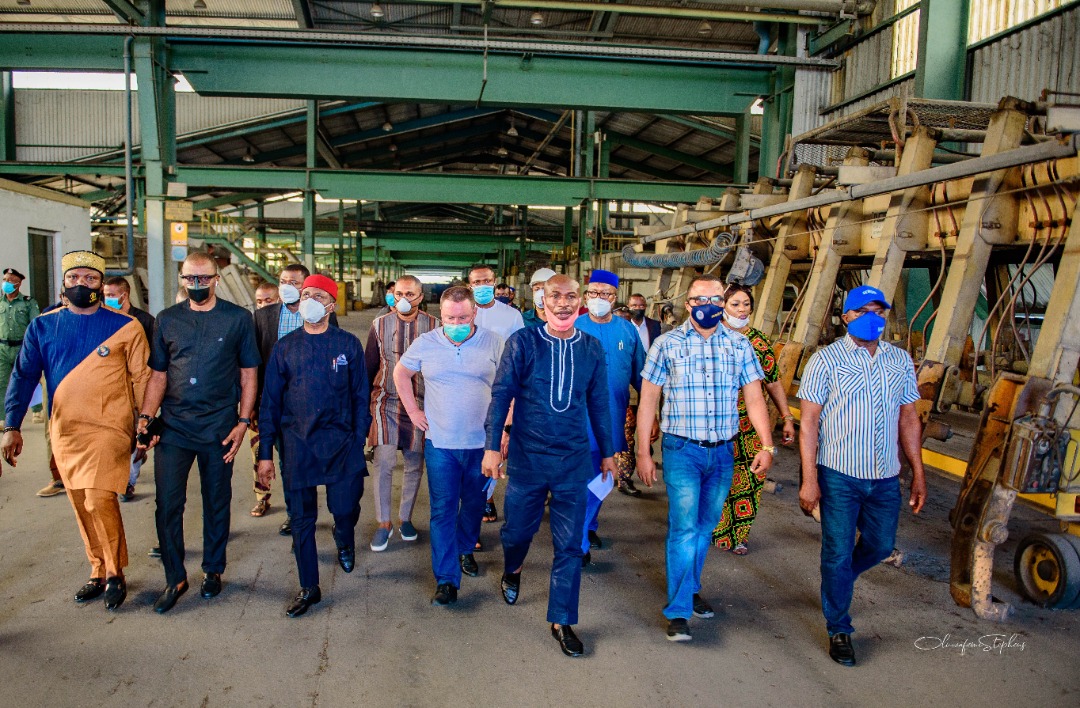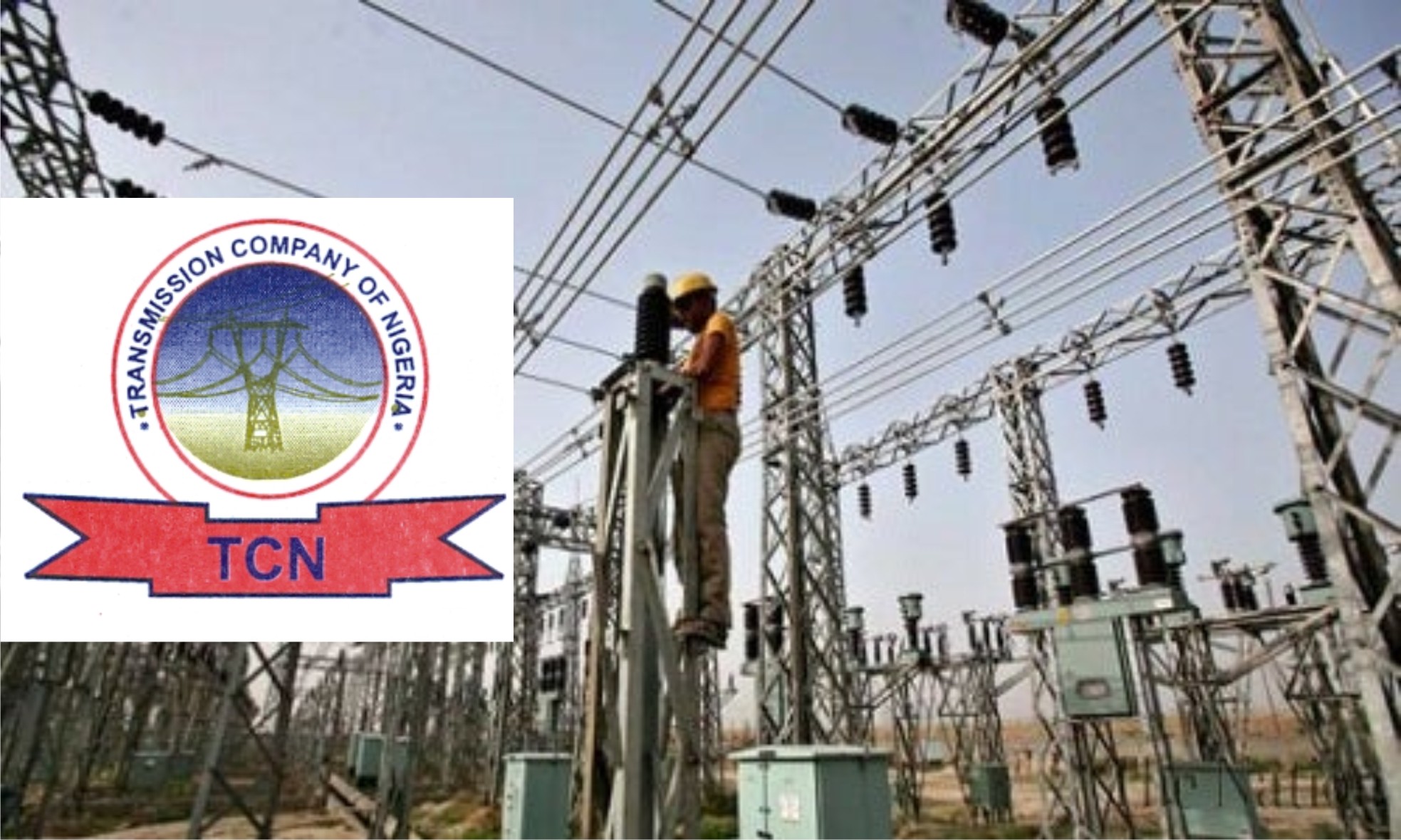Business
Only 22 % Poorest Households In Nigeria Have Access To Electricity -World Bank

Most poor households in Nigeria are not connected to the country’s electricity supply network as only 22 per cent of the poorest of them have access to grid power, the World Bank has said.
The bank said this in its report on Nigeria Power Sector Recovery Programme, which was based on latest figures sourced from operators such as the Nigeria Electricity Regulatory Commission, the Rural Electrification Agency, the National Bureau of Statistics, power generators and distributors.
An analysis of the detailed report showed that many poor Nigerians, particularly those in rural areas, were not connected to the country’s power grid.
In the report, the bank asked, “Who is connected to the grid?” And it answered the question by saying, “Only 22 per cent of the poorest households have access to electricity”.
It then argued that keeping electricity tariff low was beneficial to the rich more than the poor as the former were more connected to the grid and consume more electricity.
It said, “Who gets the higher benefit? For every N10 the government spends on meeting the tariff shortfall, N8 goes to the richer households who don’t need help paying their bills”.
The bank stated that the average annual per capita electricity consumption of Nigeria was 148 kilowatt-hour, making the nation a fourth of typical middle-income country consumption.
It stated that 40 per cent of people with access to electricity relied on non-grid sources such as generators, solar home systems, while low income households resorted to candles and flashlights.
According to the bank, 41 per cent of Nigerian households pay for grid electricity and only 18 per cent of them pay for more than 100kWh/ month.
The report observed that 58 per cent of non-farm enterprise owners were women and many of them were home-based, reliant on generators and were losing sales.
The bank said, “Large number of rural schools and health centres are unelectrified – critical for human development.”
It said electrification in Nigeria had been at 1.1 per cent per annum since 2010 and had not kept pace with population growth, which it put at three per cent per annum, hence increasing deficit by about three million people to 85 million (57 per cent of population).
“Nigeria now has 25 per cent more unelectrified people than the second most unelectrified ciuntry (DRC – in absolute terms)”, the bank stated.
It added, “For bottom 40 per cent of the population (mostly rural), access to grid electricity is even lower at about 31 per cent nationwide. Regionally, only South-West has access over 50 per cent (except Kano).”
The bank said Nigeria now had the largest number of unelectrified people globally and the trend was worsening, adding that of the electrified, the supply was very unreliable with widespread blackouts
It stated that to achieve universal access to electricity by 2030, Nigeria would need to connect over one million households per year.
The bank, however, said its proposed engagement with the Federal Government on power sector recovery was under two streams, with the aim to provide holistic support for addressing key challenges through results-based lending.
The global financial institution said the programme was being led by the Office of the President with the ministers of finance and power and the commitment to balance fiscal space with tariff adjustments, while ensuring protections for poor.
Continue Reading
Business
CBN Unveils NTNIA, NRNOA Accounts For Diaspora Nigerians’ Investment

Central Bank of Nigeria (CBN) has introduced two accounts: Non-Resident Nigerian Investment Account (NRNIA) and Non-Resident Nigerian Ordinary Account (NRNOA), to manage funds (both in foreign and local currencies) from Nigerians abroad.
In a circular signed by its Acting Director, Trade amd Exchange Department, W. J. Kanya, the apex bank said with the NRNOA, Non-Resident Nigerians (NRNs) will be able to remit their foreign earnings to Nigeria and manage funds in both foreign and local currencies.
“The NRNOA enables Non-Resident Nigerians (NRNs) to remit their foreign earnings to Nigeria and manage funds in both foreign and local currencies, while the (NRNIA) enables Non-Resident Nigerians (NRNs) to invest in assets in Nigeria in either foreign currency (FCY) or local currency (Naira)”, the statement read.
It continued rhat “Account holders may maintain both a foreign currency (FCY) account and/or a local currency (Naira) account to facilitate transactions and participate in diverse investment opportunities”.
CBN also explained that NRNs can use their NRNIA to participate in Nigeria’s Diaspora Bond and other debt instruments issued locally specifically targeted at the Nigerian diaspora or available to the investing public.
The account is also to serve as a conduit for NRNs to manage their funds directly in a safe and secure environment, and reduce the reliance on third parties in meeting local commitments and obligations.
According to the bank, effective January 1st 2025, eligible NRNs shall have the opportunity to own any of the non- resident Nigerian accounts, subject to meeting KYC requirements which will be made available in FAQs to be released soon.
The CBN added that “This policy is without prejudice to Memorandum 17 of the CBN Foreign Exchange Manual (2018)”.
Business
Diesel Price Hike: Manufacturers Opt For Gas

Manufacturers in Nigeria are gradually opting for natural gas as a solution to increasing diesel and petrol prices which have negatively impacted on production expenses.
Recall that following the removal of fuel subsidies by President Bola Tinubu in his inaugural address on May 29, 2023, the prices of diesel and petrol have skyrocketed, further worsening the cost-of-living crisis for people.
Recognising the potential of its vast natural gas reserves, which is over 200 trillion cubic feet, has initiated a Compressed Natural Gas (CNG) programme aimed at reducing transportation costs by nearly 50 per cent.
The initiative encourages the conversion of vehicles to CNG and aims to introduce CNG buses across major cities.
Additionally, the recent commencement of diesel sales by Dangote Refinery has led to a notable decrease in diesel prices, dropping from approximately N1,700 to N1,350 per litre. This reduction is expected to alleviate some financial pressure on manufacturers’ reliance on diesel for operations.
Industry leaders emphasise that transitioning to natural gas not only addresses immediate cost concerns, but also aligns with global sustainability goals.
The Manufacturers Association of Nigeria (MAN) has, therefore, urged businesses to adopt sustainable energy practices, as energy costs constitute 30-40 per cent of production expenses.
Commenting on the development, Managing Director of Tiget Business International Limited, Zheng Wei, said some Nigerian manufacturers are leveraging improved gas supply around Lagos to boost production despite recurring grid collapses.
Wei, who oversees one of the country’s largest footwear manufacturers, described this shift as vital to sustaining operations amid Nigeria’s power crisis.
Wei noted that while manufacturers face challenges like inflation, currency instability, and regulatory hurdles, power remains the most critical issue.
According to the MAN, energy costs make up nearly 40 per cent of manufacturers’ expenses, with limited and unstable grid supply disrupting production and reducing output.
To address this, Tiget partnered Clarke Energy to install a 6.6 megawatt Jenbacher gas power plant, sourcing gas from a supplier along the Lagos-Ibadan Expressway.
The project included assessments, engineering designs, and maintenance services, enabling Tiget to transition to cleaner, more efficient, and cost-effective energy.
Wei said, “The gas plant is producing cleaner electricity and saving us significant operational costs compared to diesel. It has addressed efficiency issues, making our operations more sustainable”.
On hos part, the Managing Director of Clarke Energy for sub-Saharan Africa, Yiannnis Tsantilas, emphasised that adopting resilient and cost-effective energy solutions is key to sustainable productivity for manufacturers.
He commended Tiget’s leadership for enhancing Nigeria’s economy by improving local market access to quality footwear, reducing unemployment, and increasing investment.
Tiget, incorporated in Nigeria in 2020 and based in Sagamu, imports polyvinyl chloride as a key raw material for its footwear products.
The company plans to expand its operations through backward integration and establish offices across Nigeria and Africa.
Wei expressed confidence in Nigeria’s potential as a regional economic hub, citing its young, talented population and vibrant local market.
He, however, acknowledged the challenges of high fuel costs on logistics and competitiveness, and called for investments in refineries to provide feedstock for plastic industries and a stable gas supply to support manufacturers, arguing that these measures would drive industrial growth and enhance Nigeria’s economic stability.
With a population exceeding 220 million, Nigeria’s dynamic market presents significant opportunities.
Tiget, Wei said, aims to contribute by producing high-quality footwear that aligns with Nigeria’s rich cultural identity and evolving fashion industry.
Business
TCN Debunks Grid Collapse, Says Lines Tripped

The Transmission Company of Nigeria (TCN) has debunked last week’s declaration of grid collapse due to power disruption, saying it was due to the tripping of the Benin-Omotosho Line, not a national grid collapse.
Recall that the media widely reported last week that the national grid had experienced its first collapse in 2025.
TCN spokesperson, Ndidi Mbah, said the report was a misinformation.
“The TCN, hereby states that the nation’s grid did not experience any collapse today, contrary to the widely published misinformation in the media.
“Earlier today, at about 13:41 Hrs, the Osogbo–Ihovour line tripped, followed by the tripping of the Benin–Omotosho line. These consequently affected bulk supply to only the Lagos axis alone”, Mbah explained.
She also clarified that at about 13:00 pm, just before the tripping, total generation on the grid was 4,335.63MW, amd that after the trippings, generation was 2,573.23MW, showing clearly that the grid did not experience a collapse.
She noted that the transmission line tripping affected Egbin, Olorunsogo, Omotoso, Geregu, and Paras, but these have all been restored except for the Benin-Omotoso 330kV line whose restoration is ongoing.
“As TCN continues to work hard to put in place a robust transmission grid, in spite of prevailing challenges. It is imperative that we understand the negative impact of deliberately misinforming the public and the value of disseminating true and verifiable facts”, Mbah said.
-

 Business10 hours ago
Business10 hours agoDiesel Price Hike: Manufacturers Opt For Gas
-

 Nation8 hours ago
Nation8 hours agoPolice Kill Notorious Cultist In Rivers, Recover Gun, Ammunition
-
Business11 hours ago
FG Unveils Co-Investment Plans In Telecom Infrastructure Expansion
-
Sports9 hours ago
NFF Explains Why They Hired Ex-Malian Coach
-
Niger Delta11 hours ago
Military Hospital Honours 10 Workers In Benin
-
News8 hours ago
Rivers Community Demands Chieftaincy Recognition
-

 Business10 hours ago
Business10 hours agoCBN Unveils NTNIA, NRNOA Accounts For Diaspora Nigerians’ Investment
-
Nation8 hours ago
Osun Park Management Chairman Shot By Police, Union Alleges

